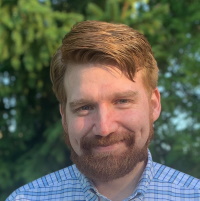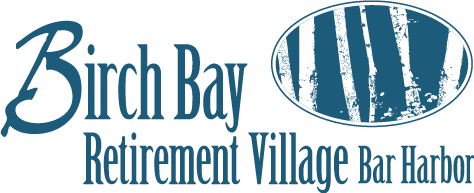Your Resource for Aging Information & Best Practices in Senior Care
Purpose Statement:
The Birch Bay Retirement Village Learning Institute is dedicated to empowering health partners and community members with comprehensive training opportunities and educational programming focused on aging information and best practices in geriatric care. Through collaboration with esteemed experts, we aim to cultivate a supportive environment where individuals can acquire the knowledge and skills necessary to enhance the well-being and quality of life for aging populations. Our purpose is to foster excellence in geriatric care, ultimately contributing to the delivery of compassionate and effective healthcare services within our community.
Ways We Can Help:
- Dementia Education
- Healthy Aging classes for Seniors
- Healthcare training for students including CRMA/CNA or PSS Certification Classes
- Music Therapy presentations
Our partnership with the MDI Adult Education program has helped train students as certified nurse’s assistants.
We have provided education to:
2023 – 2024 Series:
- “Normal” vs “Not Normal” Aging Workshop (November 2023)
- Medicare Hospice & Palliative Care Discussion (November 2023)
- Health Living for your Brain & Body: Trips from the Latest Research (December 2023)
- Blue Zones (January 2024)
- Sentimental Journey: Music Therapy in the Treatment of Dementia (February 2024)
- The Glow Method (April 8, 2024)
- Hospice & Palliative Care Presentation (Topic pending) (Date: May, 2024 TBD)
- Understanding Dementia: A Comprehensive Lecture and Workshop (June 2024 TBD)
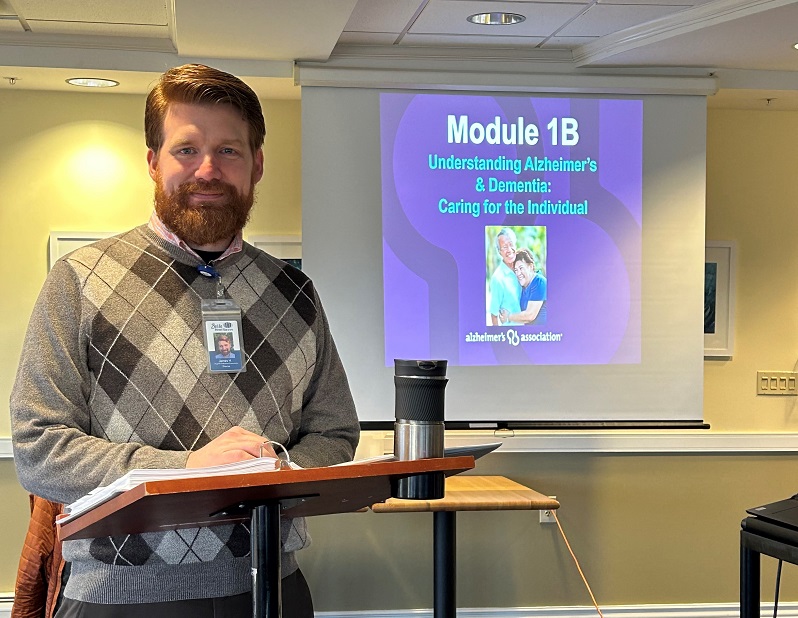
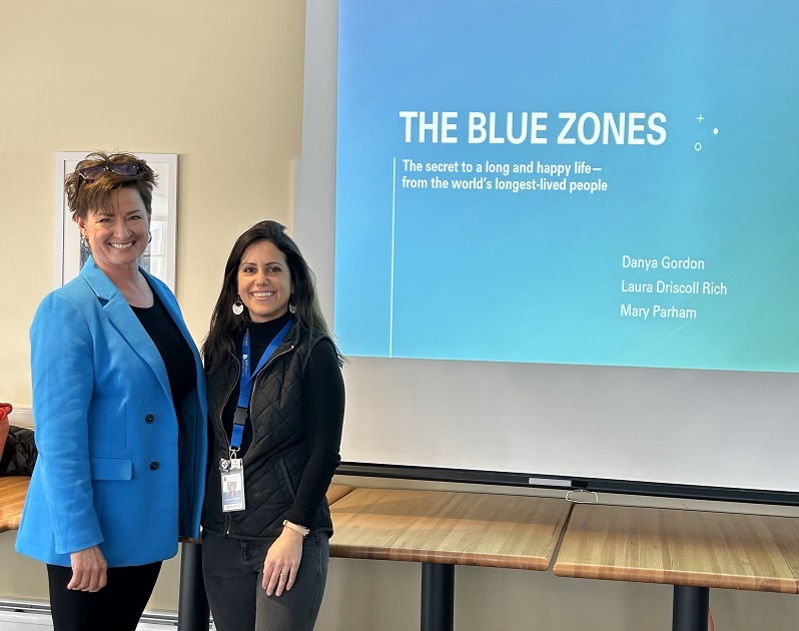
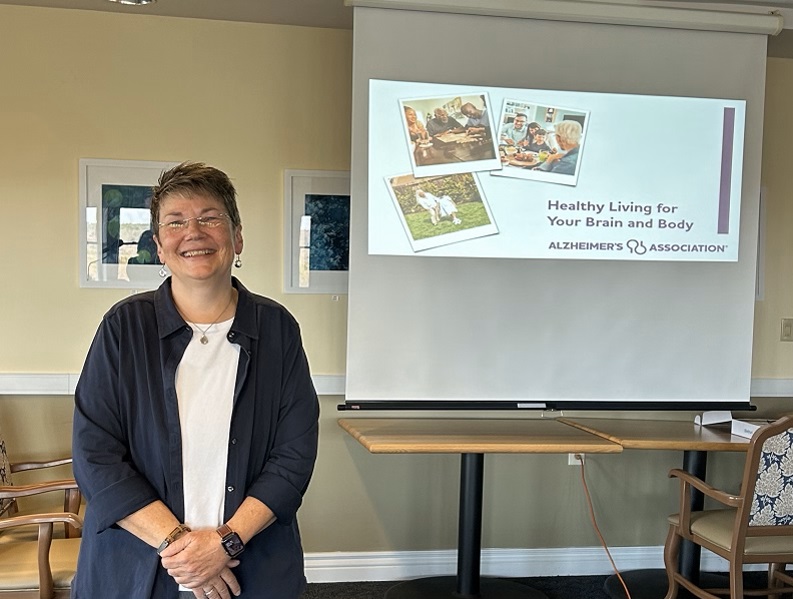
Our Education Partners:

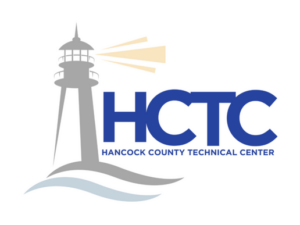

- RSU 24 Adult Education
- MDI Adult Education
![]()
Our Education Team
Melissa Violette, MT-BC, NMT
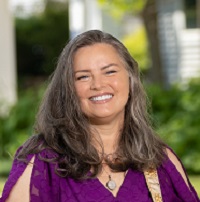
Melissa Violette is a board certified neurologic music therapist. Melissa brings her 26 years of music therapy experience in mental health. Melissa believes strongly in the healing power of music.
“I have the best job in the world! Music Therapy is my calling and, without question, what I was meant to do in life, as it combines my desire to help people with my passion for music. I want to make the world a better place in the time I have, even if it’s in a small way and just one person at a time.”
Melissa can provide education to area agencies about the benefits of music therapy.
Some Examples of Melissa’s Presentations
Aging, Dementia and What Matters Most
What is Music Therapy, the Benefits of Music Therapy with Dementia, How Caregivers can use music for self-care
Music Therapy & Dementia
Learn what Music Therapy is and is not, how Music effects the brain and the benefits of Music Therapy with Dementia.
Sentimental Journey; The role of Music Therapy in Elder Care
What is Music Therapy, and how can it benefit the Elders at your facility and why you need to have it at your establishment.

